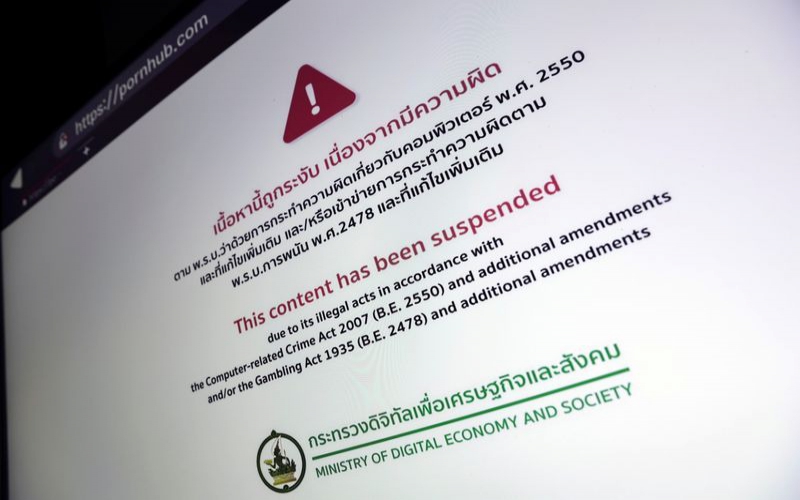×
The Standard e-Paper
Smart Minds Choose Us

Thailand’s government said on Tuesday it had banned Pornhub and 190 other websites showing pornography, prompting social media anger over censorship and a call for a protest against the decision.
Digital minister Puttipong Punnakanta told reporters the block was part of efforts to restrict access to porn and gambling websites, adding that such content is illegal under the country’s cybercrime law.